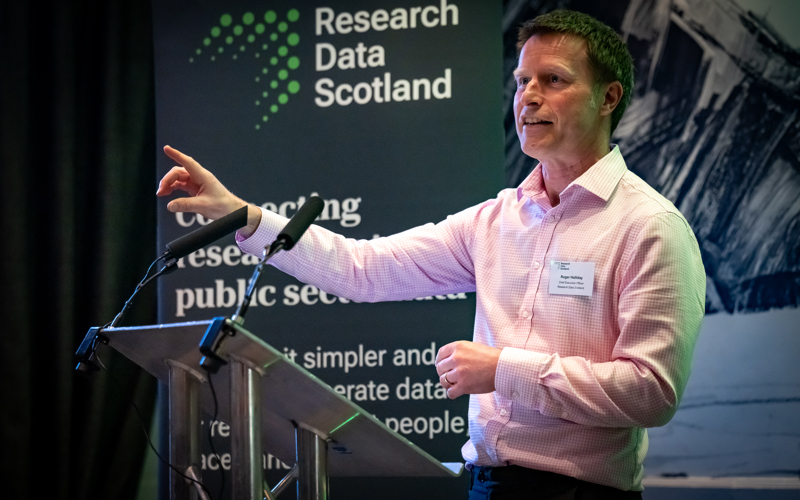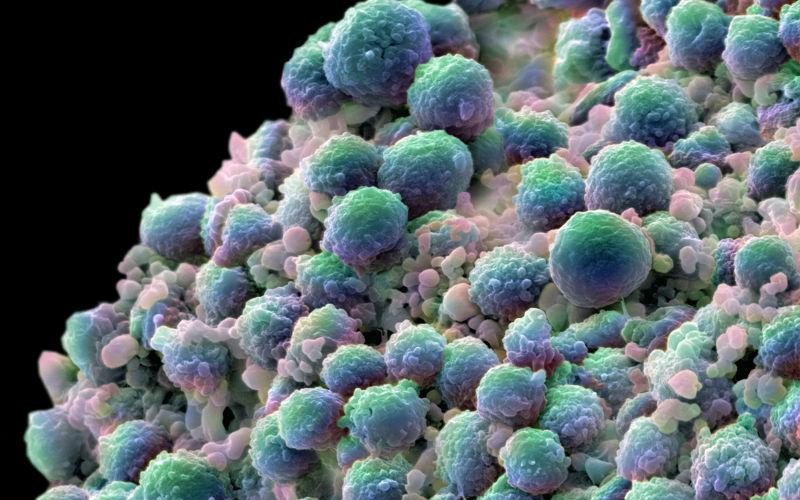
Pioneering simpler access to Scotland’s public data
Our CEO Professor Roger Halliday talks about the benefits of the Researcher Access Service, and how researchers can navigate it.
Roger Halliday
09 Dec 2024
Improving radiotherapy in PROState cancer using EleCtronic population-based healthCAre data

Out of all cancers, prostate cancer is responsible for the second most deaths in the UK, with 12,000 people dying from it every year. One in eight men are diagnosed with prostate cancer and up to 40% receive radiotherapy as part of their treatment.
Although there has been significant progress in radiotherapy technology in recent years, some patients are left with life-limiting side effects, and some patients respond better than others. The key to improving radiotherapy is personalising an individual’s radiotherapy treatment. In other words, rather than assuming that all tumours respond similarly to radiotherapy, the treatment should be optimised for an individual.
The PROSECCA project proposes the use of AI to analyse the healthcare records from over 15,000 prostate cancer patients who underwent radiotherapy in the treatment of their cancer in Scotland. Through meticulous analysis of the data from each patient’s unique healthcare history, the team seeks to discover new relationships between a patient’s medical history and how well they respond to radiotherapy in treating their cancer.
They hope to make it easier to establish which factors in a patient’s complex healthcare records indicate that they may have a poor response to treatment or an increased risk of side effects from radiation. In doing so, they believe it will be possible to identify a patient’s response to a particular treatment sooner, allowing healthcare professionals to adapt their approach and ultimately reduce side effects and achieve better outcomes.
By identifying these important factors, they aim to improve radiotherapy treatment for prostate cancer patients in the future.
The five-year project is being led by Professors Bill Nailon and Duncan McLaren, NHS Lothian and University of Edinburgh, with co-investigators and partners including EPCC, Public Health Scotland (PHS), Prostate Cancer UK, Scottish Government and all five Scottish Cancer Centres. The team includes over 50 clinicians, radiographers, physicists, engineers and patient representatives.
The PROSECCA study involves the analysis of healthcare information from two sources. The first is radiotherapy data, which is stored locally within each cancer centre in Scotland. The second is healthcare record data, which is requested through Public Health Scotland (PHS) via an NHS Scotland Public Benefit and Privacy Panel for Health and Social Care (HSC-PBPP) application.
Once they have access to the data, the team will organise the raw data into a suitable format for large scale computing, which will make implementation of the AI algorithms more straightforward.
This will also help to make the PROSECCA dataset a valuable resource, as it could be reusable by other researchers.
Getting approvals to access the datasets was lengthy, taking over two years in total.
Research Data Scotland (RDS) exists to make it faster and simpler for researchers to access public sector data. We want to make the cycles of innovations faster – we are all too aware of the time pressures on researchers delivering on externally funded research projects and making sure that research indicating patient benefit gets to the clinic as soon as possible.
Through the Researcher Access Service, we enable streamlined access to data for research in the public benefit, reducing the time and resources required to undertake projects like PROSECCA and speeding up research. Launched in April 2024, the service initially enables access to nine of Public Health Scotland’s most frequently requested datasets through a streamlined pathway, where previously complex approvals and information governance processes are standardised using the Five Safes framework.
We are also working with Scotland's National and four Regional Safe Havens to simplify and streamline common systems, processes and services, making it easier for researchers to access data which falls outside of the Researcher Access Service. For projects like PROSECCA, which required researchers to obtain individual approvals through several local health boards, our work to federate processes will further improve the data access journey. Find out more about our work with the Scottish Safe Haven Network.
PROSECCA is the first study of its kind to combine radiotherapy-specific data with digital healthcare data and primary healthcare records at this large scale.
Whilst the analysis of the PROSECCA data is about to begin in earnest, the team has shown in a smaller pilot dataset that it is possible to predict relatively low-grade toxicity in people receiving radiotherapy using the information in the images, which is a routine procedure as part of their radiotherapy treatment.
In their ongoing work, the team hope to build a clinical decision support tool, or an app, that can be used in the clinic by oncologists to determine the impact of clinical factors linked to treatment, which could impact overall survival and quality of life.
One in eight men are diagnosed with prostate cancer, making it the most common cancer in the UK, with 12,000 people dying from it every year. The tools developed in PROSECCA will help personalise radiotherapy and reduce toxicity, which would be a welcome improvement to those living with prostate cancer.
PROSECCA is being undertaken using computing resources from EPCC at the University of Edinburgh. Learn more about the project on the EPCC website.
Image credit: Prostate cancer cells. Annie Cavanagh. Source: Wellcome Collection.
Related content

Our CEO Professor Roger Halliday talks about the benefits of the Researcher Access Service, and how researchers can navigate it.
Roger Halliday
09 Dec 2024

The Scottish Government Standing Committee on Pandemic Preparedness has published a report which includes a key role for Research Data Scotland (RDS) in ensuring Scotland is as equipped as possible to respond to future pandemics.
27 Nov 2024